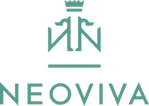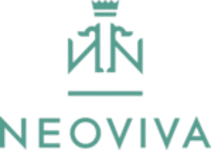Committing to a residential treatment programme is a decisive first step in your recovery. In a safe, structured environment, you can stop drinking or using and begin the process of healing.
But the real challenge often begins after treatment, when you return home. Everyday routines, relationships and stresses can stir up old habits. One of the most empowering things you can do is to understand your relapse triggers and learn how to respond to them.
How relapse happens
Relapse rarely happens overnight; it can be insidious. It usually unfolds in three stages: emotional, mental and physical.
The emotional stage creeps in when self-care falters. You may neglect sleep, push supportive people away, or suppress complicated feelings. Doubts appear.
During the mental phase, you might glorify past use, minimise risks, or question your commitment to recovery. Left unchecked, these thoughts can escalate to the physical stage, where relapse occurs. In the physical phase, cravings tip into detrimental action.
Understanding these stages helps you recognise the warning signs and gives you the power to intervene before those whispers turn into regrets.
Relapse is not failure
If relapse happens, it doesn’t mean you or the treatment has failed. According to the US National Institute on Drug Abuse, 40–60% of people with substance use disorders relapse at some point.
Remember, relapse is not a moral failing. It’s not about willpower or weakness. It’s simply a signal that your current plan needs adjusting or more support is required. Many recovery programmes, including Alcoholics Anonymous, emphasise that recovery is lifelong. Accepting this can help you stay mindful of triggers without losing hope.
That said, relapse can be dangerous. It may stir shame, guilt and hopelessness. But even if it happens, you can return to your recovery path. What matters most is how quickly you respond and reconnect with your recovery network.
Common relapse triggers
Triggers vary for each person, but some patterns are common:
- Stress: Daily pressures, grief or relationship difficulties.
- Environmental cues: Returning to familiar places or routines linked with past use.
- HALT: Being hungry, angry, lonely or tired lowers resilience.
- Sensory stimuli and nostalgia: A song, smell, or memory can trigger euphoric recall, making the past seem better than it was.
- Celebrations and milestones: Holidays, birthdays, or work events that bring temptation.
Becoming aware of these triggers is the first step in protecting your recovery.
Building a relapse prevention plan
Think of a relapse prevention plan as your personal guidebook for staying steady when life gets challenging.
Key elements include:
- Identify triggers: Know the people, places, or emotions that put you at risk. Awareness is the first defence.
- Avoid early exposure: Steer clear of bars, parties, or old hangouts until you’re stronger.
- Watch out for warning signs: Secrecy, irritability or withdrawing from friends can all signal trouble. Respond early.
- Manage stress: Exercise, mindfulness, journalling, and breathing techniques help calm your nervous system, which, when stressed, fuels impulsivity.
- Focus relationships: Early recovery is not the best time to start dating. Build stability with supportive people before starting new commitments.
- Plan for celebrations: Attend carefully, ideally with a trusted friend for accountability.
- Protect your health: Let doctors know that you’re in recovery so addictive prescriptions can be avoided.
- Stay connected: Groups like AA or NA, peer counsellors, or sober companions provide ongoing support.
- Review: Relapse prevention is dynamic. Your plan should evolve as your life changes.
- Commit to aftercare: Recovery doesn’t stop at discharge; choose a programme that offers continuity. Aftercare is a crucial part of your recovery journey.
Why aftercare matters
Effective treatment bridges into daily life, not just the time spent in a clinic. Aftercare helps you practise coping strategies, stay accountable, and manage triggers when they reappear.
Without this continuity, the return home can feel like stepping into a storm unprepared. With it, you have a roadmap and the support to stay on track.
NEOVIVA’s unique approach
At NEOVIVA, relapse prevention is built into every stage of treatment. Our programme combines one-to-one therapy, group work, lived insight, and real-world preparation:
- Real-life setting: Our private recovery clinic is located discreetly within a hotel, where clients practise everyday skills in a supportive but realistic environment. Meals, social contact, and the subtle challenges of daily life, along with stress management, become part of the therapy.
- Peer-led support: Recovery counsellors with long-term sobriety accompany clients through meals and activities. They offer lived insight, accountability, and act as a sounding board for triggers, offering empathy and practical guidance.
- Continuity of care: The same therapists and counsellors remain available after discharge, providing regular online sessions and check-ins.
- Sober companions: For added support, we help arrange companions or connect clients with mutual-aid groups to enhance their support network and accountability.
This blend of structure, clinical expertise, and real-world exposure ensures recovery tools are not just learned but exercised and lived.
If relapse happens
Even with the best-laid plan, slips can occur. Recovery is not a straight line. More like an obstacle course, recovery is an ongoing process of learning and growth. If relapse happens, reach out immediately. The sooner you act, the easier it is to get back on track.
At NEOVIVA, relapse is treated with understanding, not judgement. That’s why we offer Switzerland’s first treatment guarantee, ensuring clients always have the support they need when it matters most.
In summary
- Residential treatment stops the cycle of use, but the real work begins when you return home.
- Relapse often develops gradually, through emotional, mental and physical stages. You can learn how to intervene.
- A relapse prevention plan, combined with aftercare, is vital for long-term success.
- Relapse is not the end. With support, it can be an opportunity for renewed strength.
NEOVIVA prepares clients for real life with personalised care plans, integrative science-backed treatment, opportunities to practise coping skills in a real-world setting, peer-led counselling, and continuous aftercare. Together, these create the strongest conditions for lasting recovery.
Ready to take the next step? Call us, the team at NEOVIVA are here to help.




0 Comments